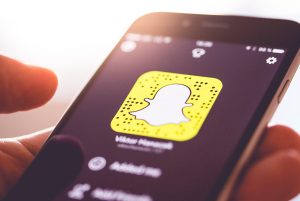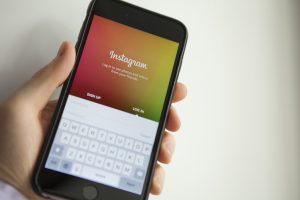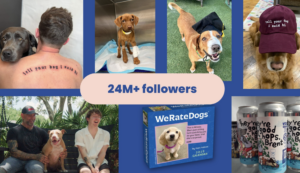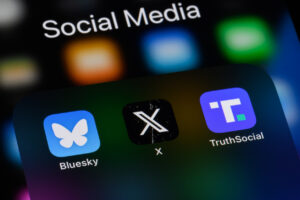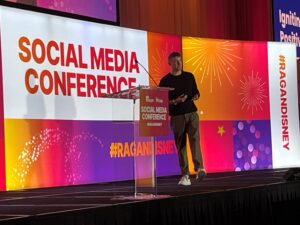New social media features and updates to know this week
New updates from Reddit, Threads and Meta AI.

This week, social media platforms prepared for the election in the United States, recalibrated their AI efforts and leaned into new verification options. There are also some overarching trends to keep your eye on, ranging from opting out of political content and the blurring of social media and AI.
Read on to see what’s new this week.
We’ve reported for the last few weeks on expansion of Instagram’s Notes function – the ability for friends or mutual followers to add a brief blurb to a Reel.
Instagram is now testing a separate Notes tab, which would allow users to scroll through all Reels which have a Note attached. It’s a sign that Instagram is bullish on the feature and willing to give valuable real estate to help people seek them out.
Reddit announced a series of initiatives and platform tweaks to help combat mis- and disinformation related to the upcoming U.S. election. Many of these are standard: reiterating moderation standards, mentioning the use of AI tools for removing disinformation at scale and detecting the use of deepfakes, and adding voter registration links.
But the most notable announcement is the ability to opt out of “political and activism-related” ads. This is a far cry from Instagram and Threads automatically opting users out of seeing any kind of suggested political content, but it’s still a notable step for a site that can have plenty of spicy political activity.
Threads
Speaking of Threads, the Meta-owned app celebrated a significant milestone this week, crossing the 200 million total users mark just 13 months after its release. As we’ve covered in the past, Threads still has a long way to go to reach even its nearest rival in terms of regular daily or monthly active users. But 200 million users is a huge accomplishment and certainly nothing to sneeze at.
And Threads continues to roll out interesting new features. This week, that includes a new blue label that will appear above posts related to a trending topic, allowing users to tap on the label to read related posts. It’s another way to draw users in and create a sense of real-time community – or it can help you figure out what on earth is happening.
TikTok
TikTok is following in the steps of both Instagram and YouTube by finally allowing creators to customize their own thumbnails. Previously, users were limited to using only still shots from their video , but now they’ll be able to create something that might better catch scrolling users’ eyes. This is an opportunity for brands and creators to optimize thumbnails and maximize views.
The clock app has also formally killed off its Lite Rewards program to comply with European Union law. The program had previously been paused after concerns that it encouraged addiction and overuse among children by rewarding them for watching content, following creators and more. The move is yet another sign of how the EU is flexing its powerful enforcement muscles, grown even stronger by the passage of the Digital Services Act..
In a move that’s sure to excite B2B marketers, LinkedIn is now rolling out verification badges for company pages. Currently only a few companies will be able to verify, but a larger rollout is expected in the future.
It’s unclear exactly how the verification process will work, but LinkedIn said:
Multiple factors are taken into consideration when determining if a Page is verified. Factors may include, but are not limited to:
- Accuracy of certain data points on the Page (example: location, website URL)
- Active Page admin presence
- Page is claimed (not a Listing Page)
- Compliance with LinkedIn policies
Meta
Meta is backing away from its “who really asked for this?” AI celebrity chatbots, announcing the feature will be sunset. It turns out people weren’t really that interested in chatting with digital versions of Tom Brady and Paris Hilton.
But Meta is considering spinning off that concept in two separate directions: celebrities and AI characters. Just not together.
The social media giant is reportedly in talks with celebrities as diverse as Dame Judi Dench, Awkwafina and Keegan-Michael Key to lend their voices to voiced generative AI. It’s important to note that none of these deals are yet inked, but it shows Meta’s focus on helping ease people into new technologies using familiar voices from popular people.
Meta is also allowing regular people and creators to make their own AI characters. As Meta describes it:
You can use a wide variety of prompt templates or start from scratch to make an AI that teaches you how to cook, helps you with your Instagram captions, generates memes to make your friends laugh – the possibilities are endless. Your AI can be just for you, or you can share it with your followers and friends, and even make it available for anyone to discover and chat with on Instagram, Messenger, WhatsApp and web.
It seems this is a new spin on creating custom GPTs, just in a way that’s more accessible and user-friendly way.
Overall, however, this continues to demonstrate just how many eggs Meta is putting in its AI basket. It’s moving far beyond being purely a social media company and trying to bring the two worlds together. Will it succeed?
Allison Carter is editor-in-chief of PR Daily. Follow her on X or LinkedIn.


